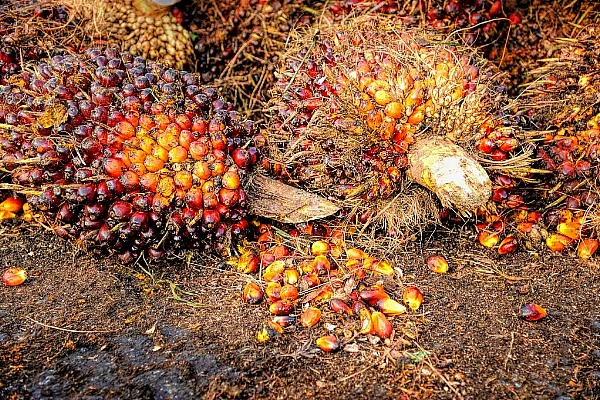Malaysia's palm oil plantations will stop operations for the next two weeks to comply with government orders to contain the spread of the coronavirus, a producer group said on Wednesday, raising concerns over global edible oil supplies.
Malaysia is the world's second-largest producer of palm oil, which is used in everything from cosmetics to cookies and accounts for around 65% of global edible oil exports.
The country has closed its borders and restricted internal movement by shutting schools and businesses from Wednesday until March 31, after the number of infections in the country climbed to the highest in Southeast Asia.
Estimated Decline In Production
Palm oil analysts estimate that Malaysia's crude palm production will drop by 350,000-700,000 tonnes for the month of March due to the harvest pause, potentially cutting March inventories to 1.0-1.3 million tonnes.
India, the world's top vegetable oil importer, could take a hit if the supply disruption lasts longer, a top broker said.
"Two weeks is fine as we have about 25 days of stocks at ports and shipments in the pipeline," said Sandeep Bajoria, chief executive of the Sunvin Group, a Mumbai-based vegetable oil broker.
"But prices have already started rising." Malaysian palm oil futures jumped 5% on Wednesday on supply concerns after plantations were forced to shut operations. Palm futures prices also rose in China and India .
India, which consumes around 1.9 million tonnes of edible oil a month, has 1.5 million tonnes at ports and in the pipeline traders said. The country on an average imports 1.25 million tonnes a month, the balance made up with domestic production.
China, the world's second-biggest edible oil importer, has large inventories of soybean oil but stockpiles have started declining.
No Exemption
Palm oil plantations in Malaysia requested an exemption from the government's strategy but have not heard back from the government, Nageeb Wahab, chief executive of the Malaysian Palm Oil Association, told Reuters.
"In view of that, we have to adhere to the government directive to cease operations," the group wrote in a letter to members that was seen by Reuters.
A two-week halt in operations will be damaging to the industry, with fresh fruit bunches left to rot and the livelihoods of smallholders affected, an analyst said.
'Potential Revenue Loss'
"Inventory is low. If we don't allow the planters to work for two weeks, after fulfilling export orders, we will be left with very little inventory which will be unprecedented," Ivy Ng, regional head of plantations research at CIMB Investment Bank told Reuters.
"This could lead to potential revenue loss of RM1.6 billion for the industry at the current crude palm oil (CPO) spot price of RM2,280.5 per tonne," she said.
That would be a situation "likely to result in a spike in CPO price given the tighter-than-expected supply and benefit other palm oil-producing nations like Indonesia and Thailand".
Malaysia's February end-stocks fell to 1.68 million tonnes, the lowest since June 2017, according to data from the Malaysian Palm Oil Board.
The association's Nageeb has said it would take two to three months for things to return to normalcy after a shutdown.
Indonesia, the world's biggest palm oil producer, has yet to take a decision on plantation closures, an industry official said.














